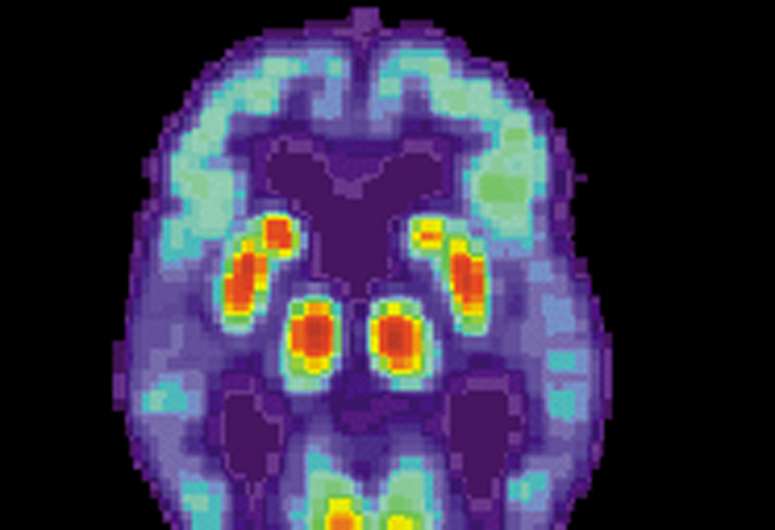Giving common muscle relaxant via nose shows potential to treat neurodegenerative diseases

Delivering the medication dantrolene through the nose rather than the mouth may help the medication penetrate the brain more effectively, potentially maximizing its therapeutic benefits in the treatment of neurodegenerative diseases, like Alzheimer's disease. In a first-of-its-kind study, researchers in the Perelman School of Medicine (PSOM) at the University of Pennsylvania showed that administering dantrolene through the nose increased its brain concentration and duration in a mouse model of Alzheimer's disease without causing obvious adverse side effects. The results were published today in PLOS ONE.
The findings represent a major step forward in addressing a question about the potential use of dantrolene—which is often used to treat patients with muscle spasms—in the treatment of neurodegenerative diseases. Although research has shown dantrolene can inhibit or slow the progression of many neurodegenerative diseases in animal models, the medication—when given orally or intravenously—only has limited penetration into the central nervous system, hampering its effectiveness and viability as a long-term treatment option.
"We know the use of dantrolene in the treatment of Alzheimer's disease or stroke would require chronic administration," said the study's corresponding author Huafeng Wei, MD, Ph.D., an associate professor of Anesthesiology and Critical Care at Penn. "Rather than using high doses of the oral form, which could increase the risk of adverse side effects, we sought to test the effectiveness of the intranasal approach via pre-clinical studies in mice."
In the United States, about 5.8 million people are living with Alzheimer's disease, a degenerative brain disease and the sixth leading cause of death in the nation. Previous studies involving cell and animal models have found that dantrolene can improve mental function and provide other therapeutic benefits in the treatment of Alzheimer's, as well as other neurodegenerative diseases, such as Huntington's disease, Amyotrophic Lateral Sclerosis (ALS), and stroke.
In this study, the Penn team examined two groups of mice—one group received the oral form of the medication, while the other received the intranasal form—to identify whether delivering dantrolene via the nose would yield increased penetration into the brain. Researchers measured the concentration of dantrolene in the brain and blood at the eight intervals: 10, 20, 30, 50, 70, 120, 150 and 180 minutes following administration. Additionally, the team gave separate groups of mice the intranasal form of dantrolene three times a week for either three weeks or four months to identify any potential adverse side effects associated with chronic use.
Researchers found mice who received dantrolene through the nose had a much higher concentration of the medication in their brain—for a much longer period of time—compared to mice who received the oral form. In fact, the medication was still in their brain at the 180-minute mark, whereas there was no trace of the medication at the 120-minute mark in mice that received the medication orally. Chronic use of the medication did not appear to impair motor function or the ability to smell. However, researchers note additional studies are needed to compare the side effects and toxicity of the different methods.
The findings build on results from an earlier proof-of-concept study, conducted at Penn, that Wei presented at the 2019 Alzheimer's Association International Conference. That study showed that intranasal dantrolene treatment in mice provided better therapeutic effects on cognition and memory loss than administering the medication subcutaneously. Researchers found the intranasal approach was particularly more effective in mice who had already experienced the onset of Alzheimer's disease-like symptoms.
"While more research in animal models is needed to further evaluate the safety and effectiveness of this approach, our hope is that this will ultimately lead to a new therapeutic approach that can be studied in patients with various neurodegenerative diseases, including Alzheimer's," Wei said.




















